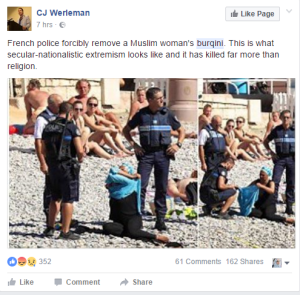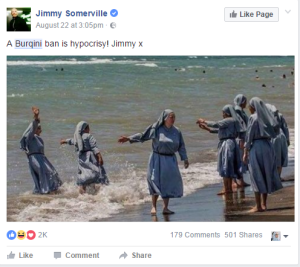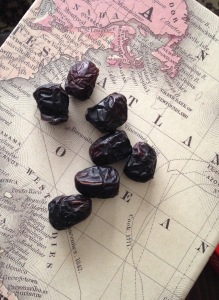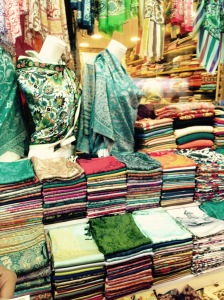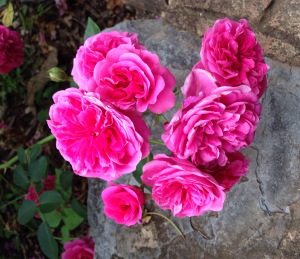…now if that isn’t a misogynistic anti-feminist statement, I don’t know what is.
France has banned the Burkini in a few cities and police have gone as far as ordering a woman wearing this modest swim-outfit to undress . They fined her, so why force her to undress in front of her children, shaming an innocent woman?
France claims to be liberating women from the enslavement of modest dress – for France, wearing a Burkini shows sympathy for ISIS and is incompatible with French values.
What about these nuns???
The first time I heard the word assimilation was in history class in grade 9, where we were discussing colonization. While many colonizers like Britain for example, were content to colonize an area, steal its wealth and subjugate its people, France always seemed to want to go a step further.
The French so prize their culture that they attempted to force the colonized to assimilate, to become French in as many ways as possible. But no one could ever be French enough. The standard was impossible to meet. The high and mighty French wouldn’t accept people as French enough, but they wanted people to give up their own cultures to try to be more acceptably “civilized”. What happened to those who then ended up in a cultural no-mans-land?
An article in The New York Times says “The obviousness of the contradiction — imposing rules on what women can wear on the grounds that it’s wrong for women to have to obey rules about what women can wear — makes it clear that there must be something deeper going on.” It seems France is having an identity crisis and some arrogant French people are too pathetic to deal with cultural difference.
I often wonder what would have happened to Africa and so many other developing nations if they had been left alone, to “civilize” at their own pace. What would have resulted may have been better systems than the West have engineered. Maybe some countries would have come up with superior political ideas and systems (different to democracy and what is seen as correct by the global powers) but better nonetheless.
These imperial powers came to civilize us poor little non-westerners, but in the end, we have been left as developing countries, still not completely caught up.
In another article that I wrote on English people’s reluctance to correctly pronounce non-English names, I find the same one-sided relationship again…we must bend over backwards for the big guys, and they won’t even afford people the common decency of saying our actual names.
Cannes, one of the French cities that has banned the Burkini, also recently banned ladies from walking the red carpet at the Cannes film festival if they weren’t wearing heels.
Who makes women a slave to fashion, really?


